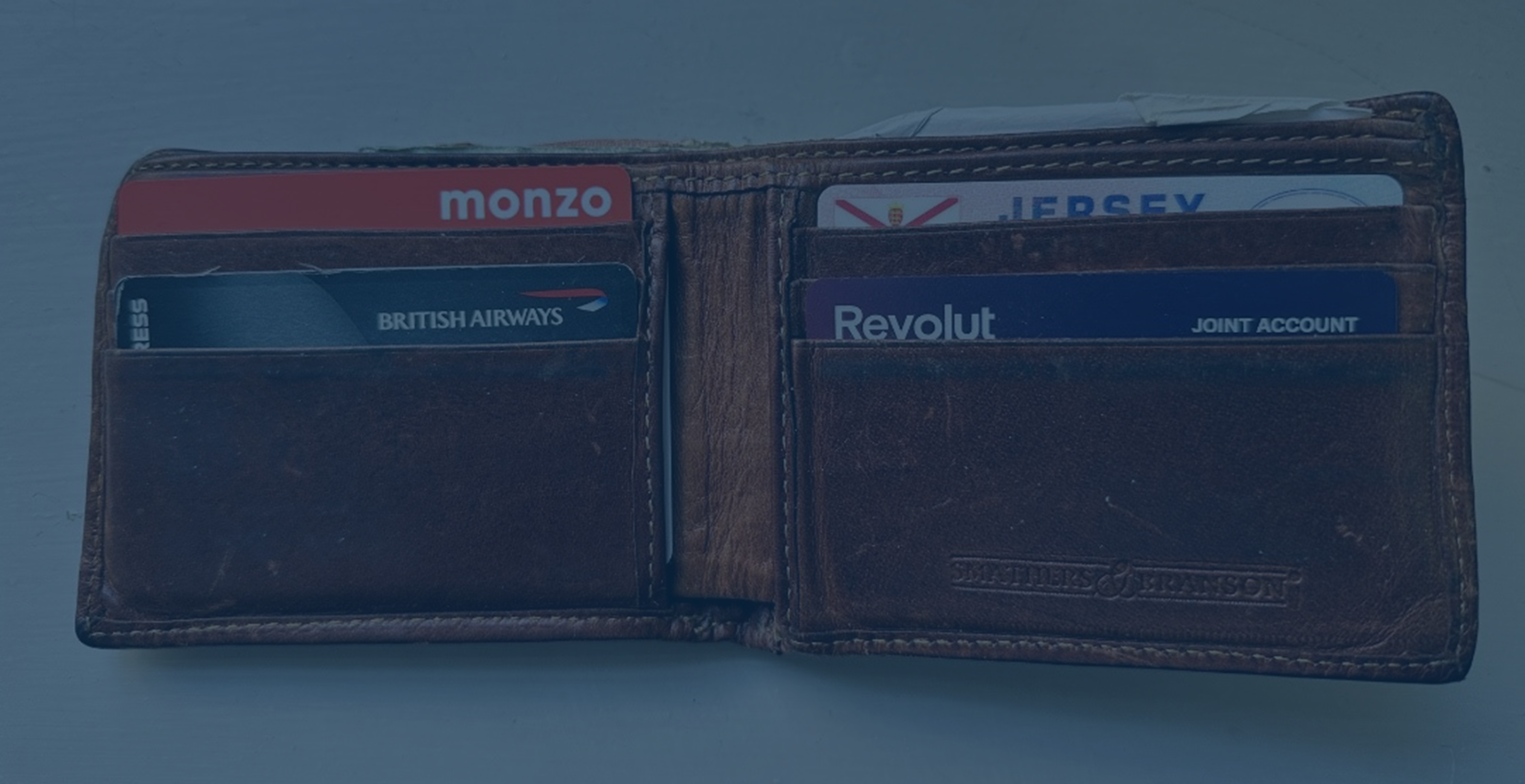
By JAMES SPENCE
When this writer was a first-year student at St. Andrews University, he had The Bank of Scotland, The Royal Bank of Scotland and the TSB to choose from, their branches all nestled together in a town that has three commercial streets.
Apart from running what was then a traditional undergraduate overdraft from time to time, the banking experience was traditional and uneventful. A bank card was required to be shown when encashing a cheque and the limit per cheque was £50. On occasion, a trusting publican would accept a cheque for a round of drinks without a bank card. The town of St. Andrews had twenty-one pubs and two bookshops which gives some sense of the predilections of the student body at the time. A pint of 70-Shilling could be had for 70p at the Student Union, a place that was only commended by its value for money.
Back then, branch managers were in the habit, when pressed, to write personal letters to customers. One friend, a student of medicine, received a letter from the BoS along the lines of “Dear Mr [name withheld], your cheques resemble nothing so much as a Good Pub Guide of St. Andrews. Please can you restore your account to good order.”
On arriving in London to take up his first job, the conventional banking choices were Lloyds, NatWest, Barclays and Midland. Fred had yet to arrive to commence his shredding of RBS. The job being in the City, this aspirant financier walked into the Cornhill Branch of NatWest and opened an account there. The parameters were the same as he experienced on the East Coast of Scotland and there was nary any innovation, although the City itself was being reshaped by Big Bang.
A period of travel before taking up his first job in Hong Kong was funded by traveller’s cheques supplied by American Express, requiring, in Delhi, a journey to the American Express offices, then housed in a building designed by Edwin Lutyens.
Even within bustling Asia, innovations were slow to arrive and in most cases were heralded in by American financial firms. In the 1990s, when it was the thing to get involved in the the dot-com boom – that boom that became a bubble and then a bust – Charles Schwab expanded internationally and their relative no-frills offering and keen pricing made users feel that they were, for the first time, accessing elements of wholesale finance and investment.
Many years on, the writer is operating the same NatWest bank account with the same account number. Inertia is a powerful force in retail banking. Not completely devoid of innovation, the young person’s banking card NatWest Rooster has been extended to his school-age children, allowing him to regulate their bubble-tea habit.
Cerno Capital has a good spread of people of all ages and there is plenty to be learnt from younger colleagues. Inspecting their wallets, with their permission, fostered some interesting discussions.
With the banking landscape less dominated by traditional totemic brands, there are more choices. Whilst so called “dematerialised” banks have had a choppy run of it in the UK, existing banks are, in effect, becoming dematerialised by stealth.
One by one, the bank branches within an easy walk from our West End offices have closed. First the Lloyds on the corner, then both the NatWests on Piccadilly, then the HSBC on Bond Street. The ATM within the tube station is perfectly serviceable, although of no known provenance and comes with it a hard to pin down sense of risk when using.
Here is a picture of Oscar Mackereth’s wallet (taken and reproduced with his permission).
 Source: Oscar’s trousers
Source: Oscar’s trousers
Oscar’s main bank account is with Monzo. Monzo was founded in 2015, obtained a restricted banking license in 2016, followed by a full license in 2017. Its deposit base was reported as £11.2bn in 2024.
Monzo’s homepage has a picture of a cheerful chap in an unfeasibly large bath, with some passing resemblance to Borat.
 Source: Monzo
Source: Monzo
Oscar uses Monzo’s app for his banking and this is what it looks like on his phone.
 Source: Oscar’s phone
Source: Oscar’s phone
He has a British Airways American Express card tagged to his account, various cash-bank offers and his app offers him live credit scoring (provided by a Global Leader company Experian). Oscar is somewhat miffed that Experian continues to cite one missed payment, five years ago, to a mobile phone company. Otherwise, his credit status is immaculate.
In tandem with Monzo, Oscar operates a Revolut account which he uses as a joint account with his partner.
Revolut was founded in 2015 with the express aim of reducing the charges on transactions in foreign exchange. One of the greatest grifts that banks have perpetrated for decades is egregious fees on cross border transactions, so they were ripe for disruption.
Revolut’s home page looks like this:
 Source: Revolut
Source: Revolut
The bold and confident young person in the advert operates the word “money” as a verb. She is doing money.
Scrolling downward reveals a second image which is testament to how Revolut has expanded beyond its initial use case to offering wider financial services. Revolut correctly gauges that where a person chooses to direct their salary as a gateway decision.
 Source: Revolut
Source: Revolut
Oscar last walked into a bank branch in 2019.
Oscar’s colleague Ion Sioras touts the value of Wise (formerly known as TransferWise). Wise was set up by two Estonian financial professionals who met whilst working in London.
Ion set up his Wise account in 2021 and, since then, has used it on travels to Uzbekistan, Kyrgyzstan, India and Chile. He deposits from his GBP operating account in the UK and either pre-emptively exchanges into the local currency of the country he is visiting, or the exchange can be done at point of sale. He reports that the exchange rates offered are good, often close to wholesale rates. GBPTRY offered at the time of writing at TL 51.82 against a screen price from Bloomberg of TL 51.8251. Furthermore, Wise provides virtual banking in large currencies including the euro, the US dollar and HK dollar, permitting the inward transfer of funds in those currencies without being clipped back into a home currency.
Fay Ren is even more adventurous than either Oscar or Ion, over the past ten years she has visited Russia, Iran, Pakistan, China, India, Mexico and Iraq. In China, all transactions can be done within the ecosystems of AliPay and WeChat and Wise now links with these two. India’s digital systems were noted in a previous Investment Letter from Mumbai [read here]. She notes that on some of these travels, cash is still pre-eminent, suggesting further digitisation to come.
All of this will be familiar to readers who have made similar financial choices or old enough to have student children or young adults.
Five years ago, we spotted the below graphic in a presentation put out by VISA. At that time, VISA was straddling two worlds: radiating their market strength and size but also seeking to partner with many of the firms listed below.
 Source: VISA
Source: VISA
As the bulk of payments are either debit or transfer (rather than credit based), VISA has played into the space well, even despite regulatory buffers which, for instance, barred them from acquiring Plaid. Plaid’s last funding round implied a company wide valuation of US$6bn and has no immediate plans to go public.
Updating that previous graphic to capture current customer bases, it is clear to see the impressive and variegated growth on hand.
 Source: Cerno Capital, company web sites
Source: Cerno Capital, company web sites
The point being that an industry that was pre-profit (no profits accruing to any of the participants) five years ago is now yielding winners. In the Cerno Global Leaders context, this brings some of these players into view. This is even more the case for the Cerno Future Strategy, which also invests in earlier stage businesses.
In Leaders, we have invested in Adyen and Experian and are processing Wise. In the Future Strategy, we have invested in Block Inc, Adyen, Experian, Grab Holdings and MercadoLibre. Cerno Pacific is invested in Sea Ltd, MercadoLibre, Grab, Zomato, MakeMyTrip.
James Chenevix-Trench will shortly be publishing a more detailed review of the payments sector and this Investment Letter serves to introduce the topic as very much on the investment slate.
James Spence
Managing Partner
Disclaimer: This document is issued by CERNO CAPITAL PARTNERS LLP (“CERNO CAPITAL”) and is for private circulation only. CERNO CAPITAL is authorised and regulated by the Financial Conduct Authority in the United Kingdom. This document is strictly confidential and does not constitute an offer to sell or the solicitation of any offer to buy any securities and or derivatives and may not be reproduced, distributed or published by any recipient for any purpose without the prior written consent of CERNO CAPITAL. The value of investments and any income generated may go down as well as up and is not guaranteed. You may not get back the amount originally invested. Past performance is not a guide to future performance. Changes in exchange rates may have an adverse effect on the value, price or income of investments. There are also additional risks associated with investments in emerging or developing markets. The information and opinions contained in this document are for background purposes only, and do not purport to be full or complete. Nor does this document constitute investment advice. No representation, warranty, or undertaking, express or limited, is given as to the accuracy or completeness of the information or opinions contained in this document by any CERNO CAPITAL, its partners or employees and no liability is accepted by such persons for the accuracy or completeness of any such information or opinions. As such, no reliance may be placed for any purpose on the information and opinions contained in this document.


